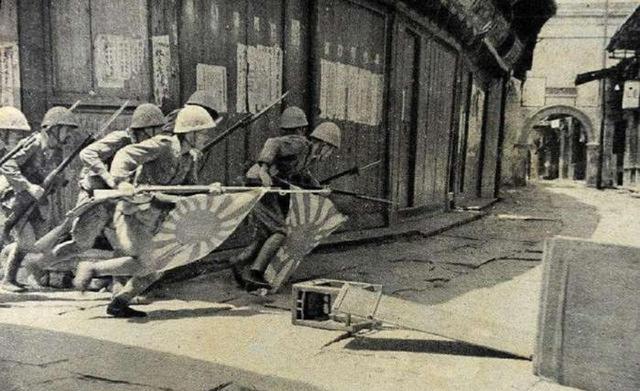After the Meiji Restoration, Japan's comprehensive national strength has been significantly improved, and it has slowly embarked on the capitalist road hoping to obtain more development resources. Unfortunately, as an island country, Japan's domestic development resources are scarce, so Japan has set its sights on China, which is rich in products but weak in comprehensive national strength.
In 1910, after the successful merger of Japan and South Korea, Japan decided to use Korea as a springboard for invading China, and subsequently implemented a series of battle plans to embezzle China's land and resources. Every time the country occupied a city in China, it plundered its cultural relics, and after the fall of Nanjing, it was sacked by the Japanese.

The Japanese invasion of China
However, after Beijing on the mainland was occupied by the Japanese army, the famous Forbidden City was not destroyed by the Japanese army. This made some people begin to think: After the Japanese army occupied Beijing, many scattered cultural relics were frantically robbed, but why did the Forbidden City escape a disaster and was not looted?
Beijing
Ancient books that were stolen
First of all, it should be emphasized that after Japan entered Beijing, China, it actually plundered many ancient Chinese books. In 1944, when the Japanese army entered Beijing, China, more than 10,000 precious ancient books were taken away by the Japanese in the Forbidden City, and most of them have not been found to this day.
imperial palace
The Reason why the Japanese army did not wantonly loot the cultural relics of the Forbidden City
As for why the Japanese army did not loot the cultural relics of the Forbidden City at that time, it was mainly because before the Japanese occupied Beijing, most of the cultural relics in the Forbidden City were moved under the organization of the Kuomintang. Since February 1933, the Kuomintang has carried out a batch of records of cultural relics in the Forbidden City.
The cultural relics of the Forbidden City moved south
At that time, the cultural relics of the Forbidden City that were protected by the southward migration were divided into five batches, including 6,066 boxes of cultural relics from antiquities exhibition halls, the Summer Palace, the Guozijian and other units, and the remaining more than 10,000 boxes came from some scattered collection sites. Thanks to the timely removal of these cultural relics, they have been well preserved.
However, in addition, some people believe that after Entering Beijing, Japan did not wantonly loot the Forbidden City, or it may be because it received orders from its superiors and did not loot the Forbidden City, so that after occupying China, the Emperor, the supreme ruler of Japan, could conveniently stay in the Forbidden City.
The Japanese army invaded and occupied Beijing
In addition, it is worth mentioning that the Forbidden City itself is a cultural relic, and Japan was bound to win against China at that time, and japan at that time occupied an absolute war advantage, they believed that the Forbidden City would eventually become their own pocket, which did not directly loot the Forbidden City.
brief summary
But for whatever reason, it's a fortunate thing that China's Forbidden City was finally saved from artillery fire. Nowadays, when we walk into the Forbidden City and look at this building that has gone through many wars and changes of the times, we have to sigh that China is really strong now.
Finally, it should be added that China has been working hard to bring Chinese cultural relics back to China. Previously, China was unable to preserve many cultural relics, causing them to drift overseas. This is a regret in Chinese civilization and heritage, and now we are doing our best to make up for it, and sincerely hope that such a thing will not happen again.